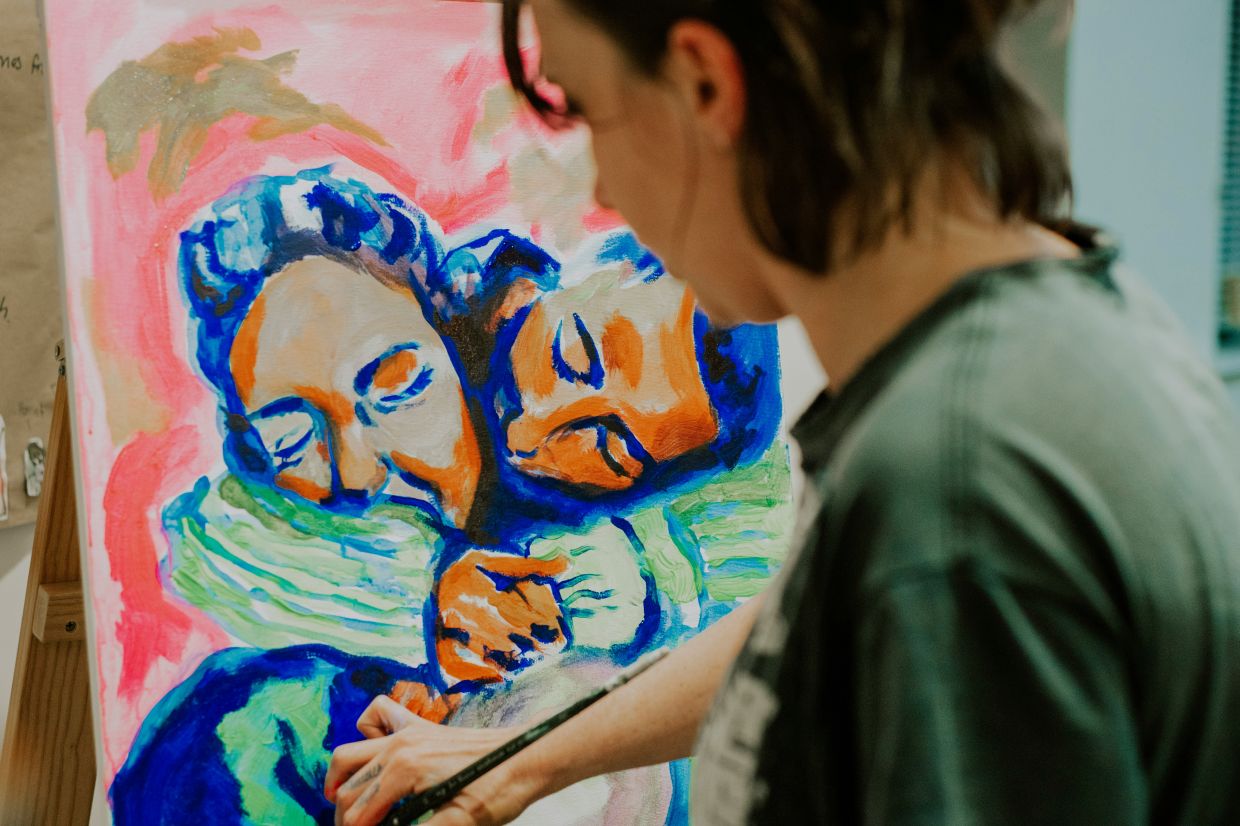
Spectators of the Roncalli Circus Show look at an hologram projection of an elephant during the show Germany. — AFP
Much has been said about how technology could be used to replace humans at work. But for animals in captivity or subjected to harsh living conditions, technology could help empower people to take action towards a more compassionate future.
Get in the ring
The Washington Post reported that Germany-based Circus Roncalli, which was founded in 1976, has started using technology to replace its animal performers.
In 2019, the circus partnered with a German firm to produce hologram animals such as elephants and horses to accompany the performances of acrobats, clowns and dancers.
The holograms were built for the circus using 3D animation, photography and virtual rendering and projected into the ring using 11 cameras.
In an interview with AFP recently, circus boss Patrick Philadelphia said “it is no longer appropriate to show real animals in the ring”.
He cited issues like the lack of space for outdoor animal enclosures and the nomadic nature of the circus, where animals have to be constantly moved around to the next location.
The hologram technology also allows the circus to thrill the audience in new ways.
“Whatever you can imagine, it can be created by an animator, by a graphic designer, then it can also be shown up in a circus show,” said Toni Munar, the technical director of the circus.
Other circuses including French circus L’Écocirque have also started using hologram animals. Bloomberg reported that the circus features projections of lions, elephants and beluga whales.
Animal rights group People for the Ethical Treatment of Animals or Peta has long advocated for the public to avoid circuses due to concerns that animal performers were subjected to poor living conditions and cruel training methods.
It called for the public to demand animal-free circuses that feature only skilled human performers.
Robots in action
In March, Peta India said it gifted a temple in Kerala with a mechanical or “robotic” elephant named Irinjadappilly Raman. The organisation said the elephant will help to conduct ceremonies in the temple in a safe and cruelty-free manner.
According to website Gizmodo, the robotic elephant stands at 10 feet and six inches tall (320.04cm), has large moving fan-shaped ears and roving eyes, and took about six months to build.
Peta India said elephants in captivity develop abnormal behaviours, claiming that they are subjected to punishments and beatings without access to veterinary care.
“In this modern era, Peta India encourages all venues and events using elephants to switch to lifelike mechanical elephants or other means in place of real elephants,” it said in a press release.
Back in 2020, Reuters reported that Edge Innovations, a company that specialises in animatronic and special effects in the US, has designed a robot dolphin that it hopes could be used to replace marine animals in captivity.
Costing between US$3mil (RM14.03mil) to US$5mil (RM23.38mil) each, the 2.5m-long animatronic dolphin developed by Edge Innovations weighs in at 250kg. Its skin is made with medical-grade silicone and handlers can perform movements using a remote control.
The company said on its website that it aims to use “live puppeteering, programmed behaviour and artificial intelligence” to reimagine the marine animal industry.
Edge Innovations founder and CEO Walt Conti said the use of animatronics may appeal to visitors concerned about the welfare of live animals in theme parks.
Criticism against the use of marine animals like whales and dolphins in theme parks have mounted over the years due to allegations of cruelty to animals.
The Los Angeles Times reported that the documentary Blackfish (2013), which exposed the harsh conditions of captivity for killer whales, led to significant boycotts of a marine park chain in the US.
Ending animal testing
While many animal rights groups have declared animal testing as cruel and unethical, the practice still exists as it is deemed necessary for medical and scientific advancements.
Reports have now emerged that some companies are using artificial intelligence to reduce the need for animal testing.
In 2022, business magazine Fast Company reported that US-based intelligence firm SmarterX (formerly known as Smarter Sorting) has developed a method of using AI and machine learning to calculate product toxicity.
“Most ingredients used in consumer products have toxicity data that goes back decades,” said the firm’s regulatory expert AJ Kenny.
“So we have all this great data that exists at the ingredient level, so you would plug these into formulas based on estimates of, okay, this ingredient makes up 10% of the overall product.”
The magazine reported that for products like cosmetics and medicine, companies traditionally tested on animals to see if the products are toxic. One method is to put a certain amount of the product in a tank of fish and observe how many will die.
SmarterX CEO Jacqueline Claudia said developing a computational model to determine the level of toxicity products is not only faster and cost effective but also more humane.
According to Newsweek, the company also co-sponsored a bill in California “that paves the way for the state to start accepting computational toxicology results over live animal testing ones”.
Meanwhile, Fox Business reported that US-based VeriSim Life has developed “digital twins” of the human body and different animals.
It aims to use machine intelligence to observe how pharmaceutical products would impact real life subjects before going to clinical trials.
The company claimed that such AI-powered methods will reduce the need for animal testing.











































